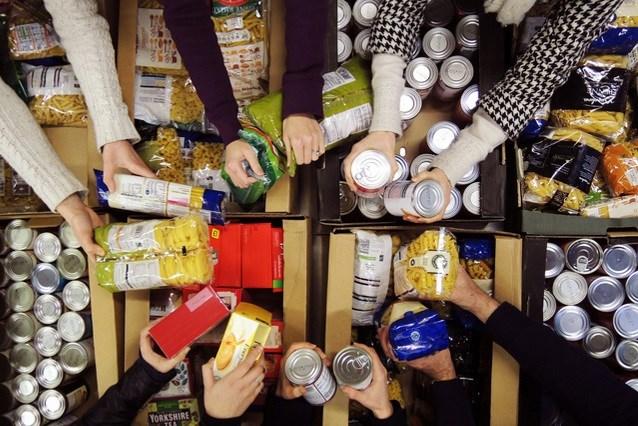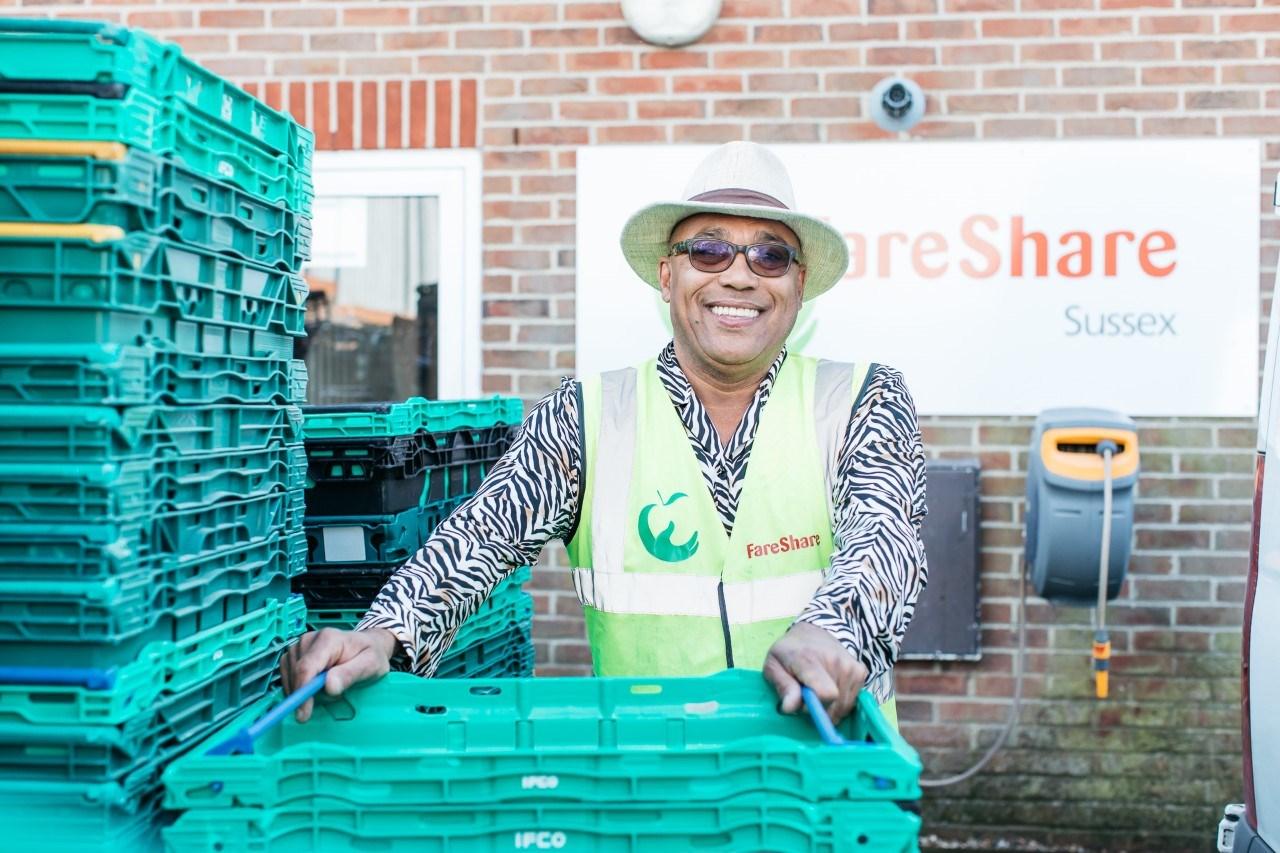
12 minute read
Yapton & Ford area history
through the door
History 25
Advertisement
Flint, charcoal & pottery Our past from below the ground By Allen Misselbrook, Yapton & Ford Local History Group
While pottering in my garden I discovered some short lengths of white clay tubes with a small hole down the middle. These, of course, were the broken remains of old clay smoking pipes thrown away long ago. Tobacco was introduced to Britain in 1565 which set the earliest date that these pipes could have been discarded. Also uncovered in the border were some oyster shells which looked ancient. Following a little research, it appeared that these could have been consumed by the romans. This set me thinking, with all the construction work that is being carried out in our villages of Ford and Yapton, I wondered what other finds have come to the surface now and in the past.
I can recall as a schoolboy being shown, what was thought to be a rectangular roman drain constructed from flints, uncovered by workmen who were digging a cesspit for one of the cottages on Bilsham Corner. I have never seen any report about this ‘find’ so it may have been fanciful thinking by someone. One discovery that was genuine was that made by Mr. Peter Day in 1984. While field walking (methodically walking over a given area observing, collecting and recording archaeological finds) in a field just north of Diamonds Mead and along-side Drove Lane, Bilsham, he noticed areas of burnt soil, flint and handmade pottery sherds. Subsequent excavations unearthed ‘finds’ dating from about 900 BC. The site was very close to a previously discovered roman site in an adjoining field which is now lies under a reservoir. With newly proposed construction sites, a usual requirement of the developer is to have assessments carried out as to the probability of finding archaeological remains. In the case of the ‘Bonhams’ site archaeologists were called in and discovered signs of stoneage activity which were recorded and assessed as to their importance. Further discoveries were made on building sites on either side of Burndell Road. Before construction started on the site behind Goodhew Close and Fordwater Gardens, Cotswold archaeology excavated 50 trenches. These trenches revealed many ancient ditches and field boundaries, an indication of early human activities over a range of periods from bronze-age to post-medieval. The idea of early settlements was born out by the discovery of charcoal, burnt flint, burnt clay and broken pottery. Subsequent tests on the charcoal revealed that it was produced from wood obtained from oak, hawthorn, rowan, crab apple and wild cherry trees. A Selection of Flint Tools
Perhaps the most exciting discovery occurred last autumn when a pit was discovered on a site on the south side of Burndell Road. According to the latest press release by Wessex archaeology (perhaps their most famous archaeologist to television viewers is Dr. Phil Harding of ‘Time Team’ fame) more than 2000 artefacts were found in a pit dating back to the stone-age, 6000 years ago. The finds include flint arrowheads, a flint knife and a polished flint axe. Nestled along-side these were sherds of pottery from several different pots. Evidence of the type of food that the early inhabitants of our area consumed were extracted in large quantities from the pit. These included burnt grains of emmer wheat and barley as well as fragments of hazelnut shells and traces of fruit residue such as apples. Ford airfield has seen a great deal of archaeological activity as a result of all the industrial development that has occurred over the past sixty years. One of the major reports was undertaken by C. Place in 1999 prior to the construction of Southern Water’s treatment plant. The excavations uncovered evidence of ditches and postholes dating as far back as the late bronze-age with over 3000 sherds of pottery being found. A significant amount of flintwork was also recovered, the variety of flints not only suggested a hunting community but the likelihood of a nearby settlement. ‘finds’ were also found relating to the iron-age and the early roman period but according to Place’s report, major roman activity ceased in the area after approximately 60 AD. Analysis of the samples of flora found during the course of the excavations resulted in a substantial list of plants and grains being identified giving an insight into the way our ancestors lived. Much of the archaeology retrieved from the above sites are deposited in the Littlehampton museum. The Yapton and Ford local history group have negotiated with Wessex archaeology and arranged for Dr. Phil Harding to give a presentation on Monday 7th September in the Yapton and Ford village hall. Covering the discovery of the 6000-year-old artefacts on the site south of Burndell Road and his career as an archaeologist. Phil Harding Example of a Neolithic Flint Arrowhead
26 Charity Profile
FareShare Sussex Tackling food waste and fighting hunger - turning an environmental problem into a social solution. By Georgia Brown
Many people have the privilege of being able to afford everyday essentials, like clothes and running water. Most people reading this article may live in a home with both heating and electricity. However, many people may not be aware that for approximately 5.8 million people in the UK, the realities of living in ‘deep poverty’ make it hard to afford even the most basic of essentials, including food. Around 10% of the UK population of all ages go hungry every day. Though this might seem like a staggering statistic, food poverty can affect anyone, at any time under unpredictable circumstances. This can be due to many reasons, such as unexpected redundancy, reduced welfare support or simply having to support a family on


a low income. This means that for many people, they have little to no choice but to turn to drop-in centres, hostels, food banks and other emergency help in order to feed themselves and their families. For some people, going along to a lunch club helps to alleviate chronic loneliness as well as providing a comforting meal. However, these resources are not widely available and rely on volunteers and workers willing to give up their time to help those in need. This is where FareShare Sussex comes in - a charity that has a long-term vision to eradicate food poverty. The team of incredibly hardworking volunteers have changed the way food waste is disposed of, reclaiming safe-to-eat surplus food from manufacturers, suppliers and retailers that would have otherwise been thrown away. The charity distributes this food to local charities and community projects across East and West Sussex, and parts of Surrey, where it is then turned into thousands of nutritious meals every week for the people who need it most. FareShare has made it possible to accept a wide variety of surplus food, including meat, dairy, fruit, vegetables and ready meals, along with tinned and packet foods such as tuna, rice and coffee. All food accepted by FareShare must comply with food safety legislation, be within its use by and best before dates and be packaged appropriately. FareShare claims that for the community groups they work with, their services are a “much needed resource”; without their support, hundreds of people across the South would go hungry. Beth Parry, FareShare’s fundraising and communications manager, explained that FareShare began in Brighton in 2002 as a small volunteer-run project,
through the door
27


28 Charity Profile
delivering a small amount of supermarket surplus to just a handful of homeless projects in the area. “The stark injustice of good food unnecessarily being wasted alongside the growing issue of homelessness highlighted how one issue could help the other” she said. FareShare is turning an environmental problem into a social solution. Beth continued, “Since 2002 the project has grown year-on-year and now delivers surplus food to 125 charities across Sussex and Surrey. The charities include food banks, homeless hostels and day centres, young people's projects, women's refuges and older people's lunch clubs. By using our service these organisations are able to redirect vital funds into their core services for their clients.” When asked what the best aspect about volunteering for FareShare is, Beth told us that for many volunteers, their main motivation for volunteering is “making a difference to vulnerable people in their community” and enjoying the fact that they can directly see the impact their work has on people’s lives. Furthermore, the work FareShare does for the community does not just benefit those in need, but also works to reduce the environmental impact of high levels of food waste across the county. At such a crucial global stage and with concerns about the ‘climate crisis’ ever increasing, it is refreshing to see a charity pledging to place sustainability at the heart of their mission. By

preventing large amounts of surplus food heading to landfills, FareShare dramatically reduces the environmental impact caused by food waste every day. According to Beth, the charity saved 2,436 tonnes of carbon dioxide emissions last year alone - that is equivalent to powering over 400 homes with electricity for a whole year. However, the pledge to be more sustainable does not end there for FareShare. Beth claims that the charity recognises that it has a little way to go to reduce their own environmental impact even further. She said, “We hope to invest in greener transportation systems, which isn't something we can afford to do without funding. We have an application pending for an electric van and an e-cargo bike, which would reduce our own emissions and enable us to receive and redistribute more food.” According to Beth, the charity would not be running if it wasn’t for the hardworking selfless team of volunteers. Beth said, “We have regular social events

through the door


29

30 Charity Profile
throughout the year, do all we can to acknowledge their hard work and really we could not exist without our team of 150 incredible volunteers.” Similarly, Beth continued that FareShare could not exist without donations and people fundraising. “We need to cover our warehouse rent, our van leasing, fuel and maintenance, our staff salaries and volunteer expenses to be able to keep the project going.” It may be difficult to imagine what Sussex would be like without charities like FareShare working towards reducing food poverty across the county. In response to this, Beth told us, “When asked what would happen


if FareShare had to close, the responses from our charity members were quite shocking - one saying that it could mean the loss of lives, some saying they would have to close their own project down. Many told us that vulnerable people would go without food.” There is still a long way to go before the national struggle to avoid hunger is completely eradicated, but with charities like FareShare dedicating time to tackling the problem, the struggle for many local families is eased. People can support FareShare in a variety of ways; including individual donations, community fundraising events, challenges, volunteering and they also have several food collection points in the area, including Worthing where you can drop off food items. To find out more about how you can support, visit www.faresharesussex.org.uk
How to lose money investing
By Richard Cohen FPFS ACII MCSI Chartered Financial Planner
There is a very easy way to lose all your money when investing - getting scammed. There are a few steps you can take to make yourself more susceptible to scams. Taking advantage of investment offers is an easy way to give away your savings. The reality is that “risk free” returns over and above a savings account don’t exist. As the potential return goes up so does the associate risk of losing money. Anything offering a guaranteed return over and above a savings rate is only to be trusted if you want to lose your money. Working with ‘advisers’ who pressure you to make decisions quickly can help you lose money and fall prey to scams. There’s nothing like a deadline or a time limited offer to get people to make rash decisions. Whilst you don’t want to procrastinate and let inflation erode your money for years, there are very few investment decisions that cannot wait a few weeks. Failing to check out the platforms, funds or products you are investing in upfront thoroughly can also cause substantial losses. Savings and investment scams often go undiscovered for what can be many months or years because it is easy to send statements and updates on how fictious investments are performing. It’s only when you actually want to get your hands on the money that you realise it is no longer there. Sending money to the wrong account is another way to say goodbye to your savings. Fraudsters who have hacked email accounts can use the information in your email to generate legitimate looking personalised emails. For example, there have been cases where when buying a house, people have been emailed details purporting to be from their solicitor with details of where to send the funds to complete the purchase. In fact, the email is from a scammer who has found out from their email account about their pending housing transaction and has been able to create a realistic looking email but using fake bank details. For most people making their investment portfolio up of mainstream assets, i.e. shares, bonds and property held through a regulated provider and doing a few simple checks upfront, will prevent them from becoming a victim of fraudsters. For more details visit www.nsurefinancial.co.uk or to arrange a free review please call 01903 821010.
through the door











